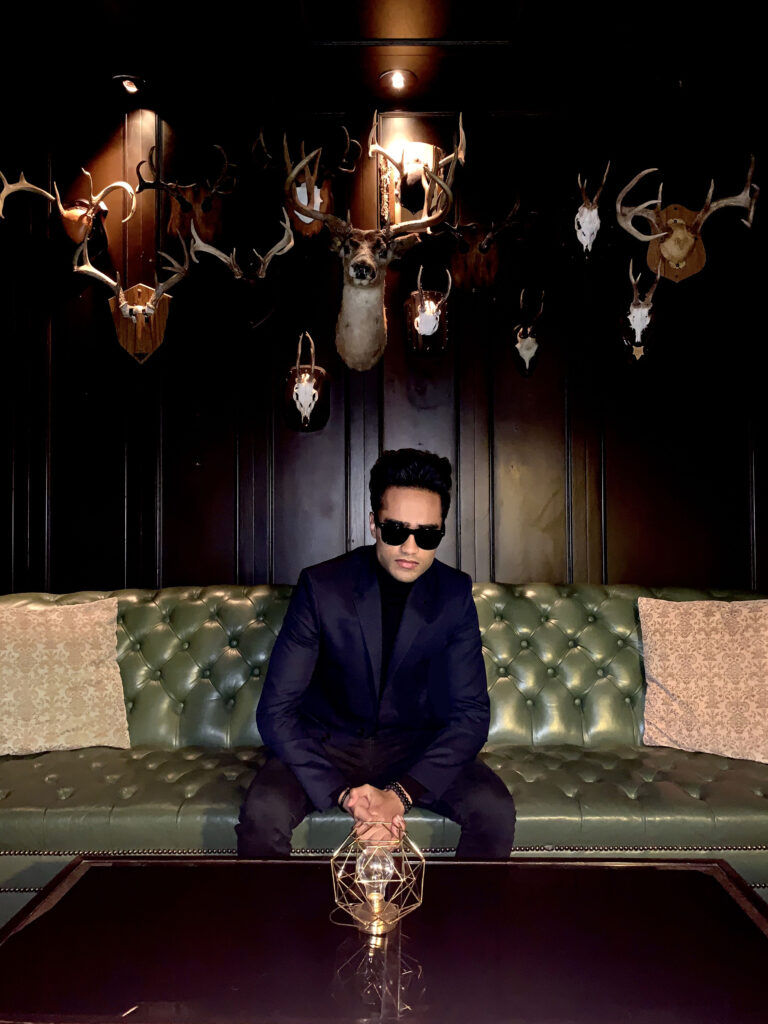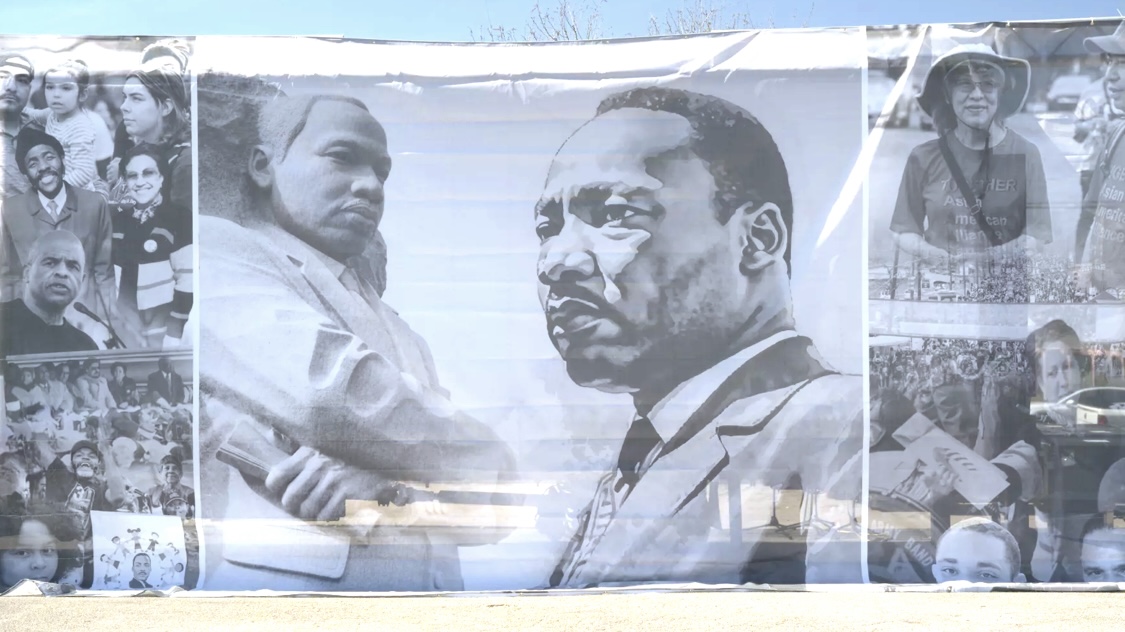(LOS ANGELES) — Once a tourist mecca, the storied El Capitan Theatre in the center of Hollywood Boulevard no longer sells movie tickets. Instead, bright-eyed (and arguably ill-advised) visitors can purchase popcorn to-go. No entry, no cinema, no art, and no culture. Just an over-salted concession drowned in melted butter.
It’s a fattening consolation prize that shrugs its shoulders and admits that, although some productions restarted and restaurants are open once more, Hollywood—as a cultural center and an industry—doesn’t have much to offer right now.
Decimated by the onset of COVID-19, the creative community in Hollywood also received their own depressing consolation prize—an ample amount of free time. Many formerly worked with collaborators on sets, in recording studios, or in voiceover booths, unfortunately all optimal breeding grounds for a highly infectious disease.
With the closure of California’s economy, the choice was made for them. Instead of flitting from job to audition to side hustle and back, creatives were grounded suddenly and indefinitely. The exponential acceleration of job loss left many grieving for their old lives and the ability to meet basic needs like rent and health insurance.
But many Los Angeles actors, comedians, dancers, hosts, and musicians refuse to give in to the despair. They’re doing what they do best: clawing at opportunities in whatever form they may arise, using the extra time to tap into their creativity, and reinventing themselves in the process. They don’t want your judgment or pity; they just want a chance. Creatives are getting creative again, with hopes of bucking the old system completely.
The Numbers
Survival isn’t a new concept for Hollywood’s creatives. They were bred to fight tooth and nail for a limited set of roles and opportunities. And for unfortunate contenders, the town is where some dreams go to die. Still, for the hardy few, each time they’re passed over for a role or opportunity, they gracefully pick themselves back up and forge ahead. Perhaps with a slightly deflated supply of positivity, but on the whole, eternally grateful to pursue something they so deeply love.
The Motion Picture Association estimated earlier in 2020 that the film and television industry provides 892,000 jobs nationwide. Labor union SAG-AFTRA, which represents actors, hosts, recording artists, and other creatives, estimated that the entertainment industry hit nearly 100% unemployment when the economy first shut down in March, and total wages in the industry declined 5.1% by the end of 2020, according to an IBISWorld industry report.
In November of 2020, the Bureau of Labor Statistics reported that the motion picture and sound recording industries had lost 157,000 jobs in the last year, with 2,400 jobs disappearing in the last month alone. That loss is felt disproportionately in the greater Los Angeles area, home to 182,490 of the individuals in this sector and the highest proportion in the U.S. And according to City Controller Ron Galperin’s COVID-19 job loss map, Hollywood alone lost 35,279 jobs, or 20% of its total workforce. Opportunities for creatives were highly competitive before the pandemic. Now, they’re also scarce.
According to data from the Bureau of Labor Statistics, The Arts, Design, Entertainment, Sports, and Media Occupations sector provides a mean hourly wage of about $30. But these wages are offset by the few highest-earning individuals in each sector, making the reality much lower for the majority of Los Angeles’ artistic community.
While many saw their hopes of securing their dream role or job vanish, they simply conjured up a new dream, something they could architect themselves from start to finish. They looked at the desert of the entertainment industry, assessed their chances of surviving, and trotted off to quench their thirst elsewhere.
The Director
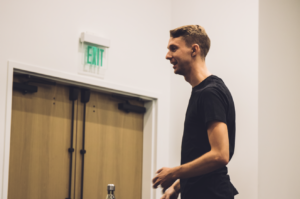
Mikey Mulhearn is a theater director living and working in Los Angeles. [Photo Courtesy of Mikey Mulhearn]
But Mulhearn didn’t panic. Instead, the Midwesterner raised by two blue-collar parents returned to his guiding principle: hard work. Mulhearn and his colleagues at Shakespeare on the Deck shifted to shows with masks once it was safe to resume productions in open-air settings and began experimenting with virtual theater. He also helped a friend produce a film for a competition and is working on adapting several scripts for the virtual and physical stage, all while working a virtual full-time job at a healthcare company, thanks in part to a connection by a friend.
“I may never be able to make a living off my art,” Mulhearn admitted. “But I feel the crisis in front of us is separating the artists from those who moved to Hollywood for attention or to fuel an ego. Those who are going to survive this pandemic will do so because art is in our souls, and we can’t not create.”
The Musician
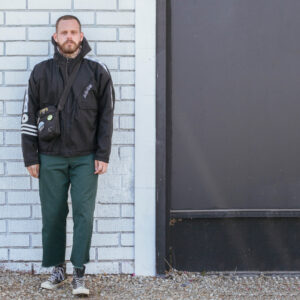
Brandon Leslie is a music producer and artist who lives in Hollywood. [Photo Credit: Mallory Turner]
Leslie’s royalty checks only come three times a year, and as work started to dry up in the spring, he took the opportunity to pursue something he’d only dreamed about. He launched a solo career under the name Obeehave and founded a streetwear brand inspired by his struggles with schizophrenia and depression and his positive experience with psychedelic therapy.
“When COVID hit, I saw the chance to grow,” Leslie said. “The world has literally stopped, and I don’t know when I’ll have this chance again. So instead of getting down on myself, I took it as an opportunity to just fucking start.”
Leslie made a huge financial sacrifice to live in Hollywood, which, like the rest of Los Angeles, is becoming increasingly expensive. Mixed with a risky industry made riskier by a global pandemic, the living situation spells disaster for creatives with irregular jobs.
So what’s keeping Leslie there? The energy, hustle, and hope.
“The energy is different in Hollywood. It’s expensive, it’s cutthroat, it’s very fast moving, and you gotta work really, really, really hard, you know?” Leslie said. “I just want to carve my own way, and I’m hopeful because tough times don’t last, and tough people do.”
The Actor
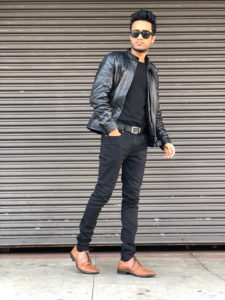
Chelly is mixing up the idea of what it means to be a Hollywood actor. [Photo Courtesy of Chelly]
The actor also connected with other Hollywood creatives on TikTok, the social media platform he sees as a powerful networking tool only enhanced by the pandemic. Despite having a manager and agent, he now reaches out to casting directors and producers directly by scouring the internet for their emails.
“A lot of people in Hollywood have taken the traditional approach of just sitting at home waiting for an audition to come in, which was the way we were told we had to do it,” Chelly said. “But this year has shown us it really can’t work like that anymore. I’ve noticed that if you take things into your own hands, things get a little bit easier.”
In some cases, new kinds of creatives are thriving. The unprecedented successes of notorious Gen Z social media stars like Addison Rae, Logan and Jake Paul, and Amanda Cerny serve as inspiration. These “influencers” flipped the typical Hollywood trajectory upside down, landing auditions as a result of wildly popular social media presences, instead of the opposite. They moved to Hollywood because of their cemented internet fame, rather than to acquire fame itself.
“I have actor friends that refuse to post anything on social media until their show comes out,” Chelly said. “But people don’t want to know what you do. They want to know why you do it.”
The Casting Associate
While creatives may brazenly grab the reins as best they can, Francesca Aiassa, a Casting Associate at Laray Mayfield Casting, says that casting directors aren’t typically responsive to direct outreach from individuals without representation, calling the odds of success a “one-in-a-million chance.” Despite a gradual shift in the industry, she believes gatekeepers exist to the creatives’ benefit and aren’t going anywhere anytime soon.
As many current roles will be gobbled up by more established performers simply due to availability, Aiassa also thinks some of the imaginative work being produced in non-traditional formats this year can make a real impact in the industry when executed artfully.
“What is cool is that there’s so much content out there, and there’s different levels and tiers,” Aiassa said. “People are making their own miniseries, and if it’s good, it should be on their reel. If you’re making cool content, we definitely want to see that.”
The Union Leader
SAG-AFTRA President Gabrielle Carteris believes that the rise in self-creation over the last six months is one of the few benefits that will stick with the industry long after this period is over.
“With iPhones and computers, people are able to self-tape for less money and don’t need studios to finance their projects, and now, that’s more cemented,” Carteris said. “There’s been a surging of that kind of work, but the pandemic has exacerbated an incredible growth in speed to the technology that we already saw being utilized.”
As for the anachronistic gatekeeper system, Carteris isn’t convinced those barriers have been broken completely, but she does believe the old-school route is evolving. Like Aiassa, she agrees that creatives should continue leaning into the connections their agents or managers provide.
“Maybe the way that it was ‘us and them’ will be lessened, and it’ll be more of ‘us and we,’” Carteris said.
The Comedian

Micki Jackson is an LA-based comedian. [Photo Credit: Jonathan Adjahoe]
Like many of her friends and colleagues, Jackson used the spare time granted by the pandemic to finish writing her first pilot, and poured herself into the nonprofit Stand Up for a Cause. As one of the founding affiliates, Jackson helped to raise $2,205 during a 75-minute show benefiting Big Brothers Big Sisters LA.
In spite of a bevy of negative changes in Hollywood’s signature industry, the artistic community is very much alive and kicking. Persistent, adaptive, and socially aware, Hollywood’s creatives want a better future, and there’s an unavoidable energy, optimism, and hopefulness amongst their community. The so-called starving artists hustle to ensure they don’t starve. They just want a sustainable lifestyle that allows them to create as much as humanly possible.
Nowadays, you won’t see the same characters traversing (or wallowing after a bad audition) down Hollywood Boulevard. But that doesn’t mean they’re not there. United in the often fruitless quest of “making it,” coupled with somewhat mind-numbing day jobs, these talented misfits make the hyper-touristic Los Angeles landscape what it is today —an industry equal parts heaven and hell, glamour and trash, success and failure.
But for the love of the artistry and craftsmanship, they’d do it all over again.
“It’s what the arts do for us. They allow us to escape. They allow us to dream. They allow us to enter a whole new world and forget our problems,” said Mulhearn. “And I feel like Hollywood is just the epitome of all of that… of every great film we’ve ever loved.”
